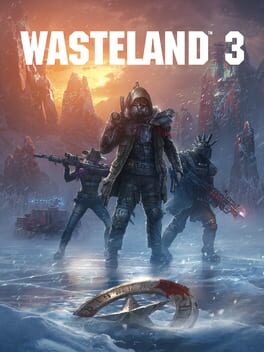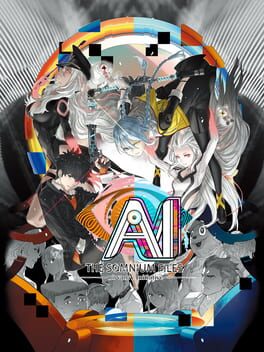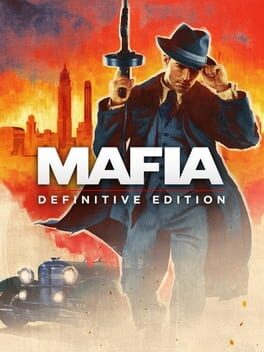yukiyukeyy
Bio
I review only the narratives.
I review only the narratives.
Badges

Roadtrip
Voted for at least 3 features on the roadmap
029
Total Games Played
000
Played in 2024
187
Games Backloggd
Recently Reviewed See More
Wasteland 3 has been thoroughly recommended to me every time I ask for a recommendation for RPGs with a good story, so I got into it extremely excited. The game starts with an incredible opening that sets high expectations for the rest of the game. Unfortunately, the plot and storytelling fail to maintain this momentum. The storyline often feels immature and lacks subtlety. Maybe I was hoping for my mind to be blown away by the characters, overarching narrative, or plot twists. But no, I feel like the game heavily leans on absurdity as amusement. When you have one or two characters that are quirky or weird, they are memorable in themselves—an oddity, if you will—but if everyone is quirky or weird, then you are in a circus. Every character, from minor NPCs to major plot figures, behaves like clowns trying to outdo each other in banter or attention.
This over-the-top humor overshadows any potential for meaningful character development or emotional investment. The absurdity of situations and characters often feels forced, with the game relying too much on bizarre humor that doesn't always land. This focus on comedy detracts from the stakes of the story, making the wastelanders appear more concerned with petty antics than the dire circumstances of their world. This lack of serious, grounded characters makes it difficult to care about the events unfolding in the wasteland.
As mentioned before, the story starts with promise, featuring a "cliché" plot that could have been enjoyable if executed well. However, as the game progresses, the main story becomes forgettable, and the side stories feel pointless. Aside from companion quests, there are few side stories that capture interest or add depth to the narrative. With the constant barrage of jokes and absurdity, going from quest to quest feels like visiting the next patient in Arkham Asylum. As a result, the quests feel like mere excuses for delirium rather than meaningful adventures.
Not to mention the ending is a rushed mess that undermines the decisions made throughout the game. The game’s attempts to tie up the narrative quickly lead to a dissatisfying resolution that leaves much to be desired. I would recommend this game as a sort of palette cleanser for gritty, dark, and serious RPG stories, but other than that, I would not recommend it unless you enjoy the tone and atmosphere of it.
This over-the-top humor overshadows any potential for meaningful character development or emotional investment. The absurdity of situations and characters often feels forced, with the game relying too much on bizarre humor that doesn't always land. This focus on comedy detracts from the stakes of the story, making the wastelanders appear more concerned with petty antics than the dire circumstances of their world. This lack of serious, grounded characters makes it difficult to care about the events unfolding in the wasteland.
As mentioned before, the story starts with promise, featuring a "cliché" plot that could have been enjoyable if executed well. However, as the game progresses, the main story becomes forgettable, and the side stories feel pointless. Aside from companion quests, there are few side stories that capture interest or add depth to the narrative. With the constant barrage of jokes and absurdity, going from quest to quest feels like visiting the next patient in Arkham Asylum. As a result, the quests feel like mere excuses for delirium rather than meaningful adventures.
Not to mention the ending is a rushed mess that undermines the decisions made throughout the game. The game’s attempts to tie up the narrative quickly lead to a dissatisfying resolution that leaves much to be desired. I would recommend this game as a sort of palette cleanser for gritty, dark, and serious RPG stories, but other than that, I would not recommend it unless you enjoy the tone and atmosphere of it.
As the young kids would say, “let the man cook.” But in this case, the kitchen is on fire, and the food has turned to burnt charcoal. Mizuki being the protagonist in the sequel was a highly anticipated change narratively, as I personally liked her despite the weird anime tropes attached to her character. However, my excitement quickly turned to disappointment. As a standalone title, the game is messy narratively. It prioritizes surprising plot twists over coherent storytelling and character development. The game's attempts to be clever with its plot often fall flat, leading to a lack of cohesion in the overall narrative.
The biggest issue is its obsession with "The Big Reveal," sacrificing what could be satisfying character arcs and self-contained storylines. The writers tried to balance the inclusion of beloved characters from the first game while making the sequel accessible to new players. This resulted in a disjointed narrative where no character arcs or threads from the first game are meaningfully followed up. Returning characters are retconned or subjected to bizarre creative decisions.
Mizuki, who was a promising protagonist that I wanted to really enjoy, ends up being flat and boring. She lacks the depth and complexity expected of a lead character following up from the first game. The game does her a disservice by not exploring her character development adequately, which is mostly caused by poor writing and a lack of meaningful progression in her story. Her role feels diminished, and she comes across as a one-dimensional character. In the original game, Mizuki was a compelling supporting character, adding depth to the story with her interactions and backstory. However, she feels like a shell of her former self. The writers missed an opportunity to delve deeper into her psyche and growth, which is disappointing for fans who were excited to see her take the lead.
The returning cast from the first game also suffers from poor treatment. Major characters in the previous game who had significant development and interesting arcs are reduced to mere shadows of their former selves. Their roles are either minimized or altered in ways that don't align with their established personalities. This flanderization is frustrating, as it feels like the game is ignoring the progress these characters made in the first installment. The new characters introduced in the game are a mixed bag. While some show flashes of potential, most are unlikeable and fail to leave a lasting impression. The game tries to make these new characters integral to the plot, but their development feels rushed and shallow. The villains, in particular, are poorly written and lack depth, making the big reveals feel underwhelming.
Once again, a big reason for this is the game's fixation on plot twists. These twists often come at the expense of character development, making it hard to connect with the new faces. Relationships that should be crucial to the story are either glossed over or handled superficially. The focus on surprising the player detracts from the emotional depth and complexity that made the first game so engaging.
The problems from the first game that I had with too much innuendo and anime clichés are also exacerbated, which makes it seem like the writer doubled down way too much. Here’s my tinfoil hat theory: I feel that the writer worked backward, starting from the big reveal and smaller twists into the actual core narrative structures. This is a huge gamble because it can seem so disconnected, especially as a sequel with already established characters.
Go play the game if you feel you want a watered-down version of the original game.
The biggest issue is its obsession with "The Big Reveal," sacrificing what could be satisfying character arcs and self-contained storylines. The writers tried to balance the inclusion of beloved characters from the first game while making the sequel accessible to new players. This resulted in a disjointed narrative where no character arcs or threads from the first game are meaningfully followed up. Returning characters are retconned or subjected to bizarre creative decisions.
Mizuki, who was a promising protagonist that I wanted to really enjoy, ends up being flat and boring. She lacks the depth and complexity expected of a lead character following up from the first game. The game does her a disservice by not exploring her character development adequately, which is mostly caused by poor writing and a lack of meaningful progression in her story. Her role feels diminished, and she comes across as a one-dimensional character. In the original game, Mizuki was a compelling supporting character, adding depth to the story with her interactions and backstory. However, she feels like a shell of her former self. The writers missed an opportunity to delve deeper into her psyche and growth, which is disappointing for fans who were excited to see her take the lead.
The returning cast from the first game also suffers from poor treatment. Major characters in the previous game who had significant development and interesting arcs are reduced to mere shadows of their former selves. Their roles are either minimized or altered in ways that don't align with their established personalities. This flanderization is frustrating, as it feels like the game is ignoring the progress these characters made in the first installment. The new characters introduced in the game are a mixed bag. While some show flashes of potential, most are unlikeable and fail to leave a lasting impression. The game tries to make these new characters integral to the plot, but their development feels rushed and shallow. The villains, in particular, are poorly written and lack depth, making the big reveals feel underwhelming.
Once again, a big reason for this is the game's fixation on plot twists. These twists often come at the expense of character development, making it hard to connect with the new faces. Relationships that should be crucial to the story are either glossed over or handled superficially. The focus on surprising the player detracts from the emotional depth and complexity that made the first game so engaging.
The problems from the first game that I had with too much innuendo and anime clichés are also exacerbated, which makes it seem like the writer doubled down way too much. Here’s my tinfoil hat theory: I feel that the writer worked backward, starting from the big reveal and smaller twists into the actual core narrative structures. This is a huge gamble because it can seem so disconnected, especially as a sequel with already established characters.
Go play the game if you feel you want a watered-down version of the original game.
Average to less than average storytelling. Short, generic, and simple. While this isn't necessarily a bad thing, it makes for an okay experience. It's a very typical, cliched mafia narrative but engaging enough to keep you interested to move the plot along even though it can be predictable most of the times. However, the brevity of the story and the disorienting time skips were a bit off-putting at first. Over time, I got used to it, but I would have preferred a more linear storytelling approach with additional side stories to flesh out the characters even more. The story could have benefited from being longer, with more developed relationships between characters. It's not groundbreaking, especially if you've seen The Godfather or other named mafia themed TV series.
Characters range from decent to good. They fit the bill for a standard mafia story, and while they aren't particularly exceptional, they do a decent job of portraying their roles. Well crafted dialogue and voice acting helps sell the character the most more than anything. A positive that I liked was the gritty and a much more realistic nature of the criminal underworld compared to other games with these themes who tend to romanticize the lifestyle.
The narrative is decent enough but not innovative, and while the characters are okay-ish, the storytelling shines through with good dialogues and well-crafted cutscenes.
Characters range from decent to good. They fit the bill for a standard mafia story, and while they aren't particularly exceptional, they do a decent job of portraying their roles. Well crafted dialogue and voice acting helps sell the character the most more than anything. A positive that I liked was the gritty and a much more realistic nature of the criminal underworld compared to other games with these themes who tend to romanticize the lifestyle.
The narrative is decent enough but not innovative, and while the characters are okay-ish, the storytelling shines through with good dialogues and well-crafted cutscenes.


